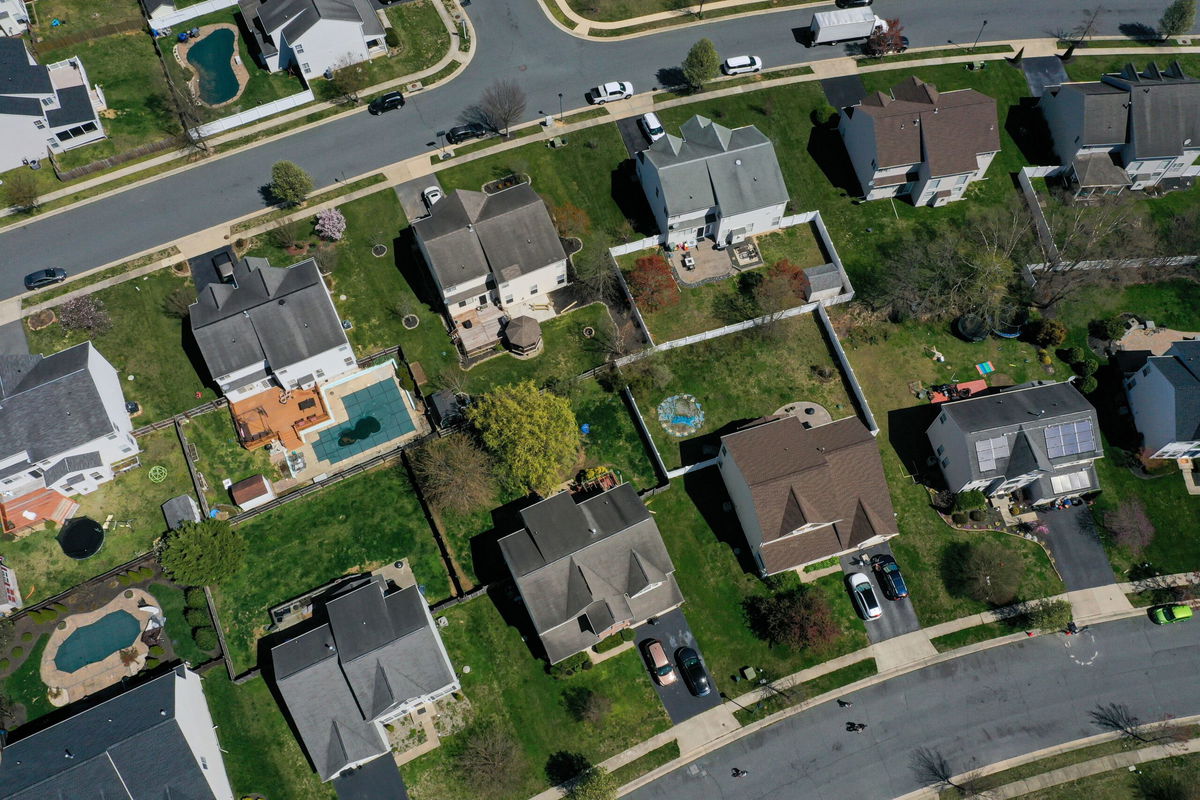Home sales and prices rose in January as eager homebuyers returned to the market

Homes in Centreville
By Anna Bahney, CNN
Washington, DC (CNN) — Sales of existing homes in the US climbed in January, pushed up by buyers who were encouraged to make a purchase by falling mortgage rates. But the surge may be short-lived if rates extend a post-January climb.
Existing home sales (not newly-constructed homes) — which include single-family homes, townhomes, condominiums and co-ops — beat expectations, rising 3.1% in January from the prior month to a seasonally adjusted annualized rate of 4 million units, according to a report from the National Association of Realtors.
Compared to a year ago, when sales were at a 4.07 million pace, sales were down 1.7%.
“While home sales remain sizably lower than a couple of years ago, January’s monthly gain is the start of more supply and demand,” said Lawrence Yun, chief economist at NAR in a release. “Listings were modestly higher, and home buyers are taking advantage of lower mortgage rates compared to late last year.”
With a return of eager buyers to the market, the cost of homes also went up. The median cost for a home jumped 5.1% from a year ago to $379,100, the seventh straight month of annualized price gains. January is usually a sleepier month for home sales, but prices reached a record high for the month.
“Multiple offers are common on mid-priced homes, and many homes were still sold within a month,” said Yun. “The elevated share of cash deals — 32% — indicated a market full of multiple offers and propelled by record-high housing wealth.”
After reaching a high last year of 7.79%, the average rate for a 30-year, fixed-rate mortgage has dropped. The rate remained around 6.6% for more than a month, although it has been trending higher over the past few weeks.
First time homebuyers face steep challenges
In January the share of first-time home buyers dropped to 28%, falling under a healthy market share of 30%.
In addition to rising mortgage rates, elevated prices and still stubbornly low inventory levels, first-time homebuyers are facing steep competition from other buyers. Especially those coming with cash, which first time home buyers typically do not have.
January’s 32% of all cash buyers is the highest share in nearly a decade. These offers could be from current homeowners with record high home equity who are taking proceeds from a sale of their home in an expensive city like Boston and buying all cash in the Carolinas where the value of a home is lower, for example.
Whatever the source of cash, for first-time or middle-income buyers who have to use a mortgage, they are at a disadvantage, said Yun.
Another strong headwind for all homebuyers is that the price of homes is now increasing faster than wage growth, said Yun. For several months wage growth was outpacing home price growth, but that changed this month with home prices up 5.1% and wage growth up 4.5%.
“In the current environment it is unhealthy and we don’t want to see it,” said Yun. “But it is a testament to the housing shortage we see in the US.”
The inventory of homes for sale was up slightly in January rising 2% from December to 1.01 million units, and up 3.1% from one year ago. But Yun said it would take an inventory level of 1.5 million to really loosen up the market.
For now, adding to the inventory of existing homes is dependent upon mortgage rates. Homeowners with ultra low rates are unwilling to sell and buy a home during a time of higher prevailing market rates.
Yun said that while the broader employment picture drives long term housing demand – the job market remains robust, pushing demand for housing – it is mortgage rates that are a more important factor to determine the timing of home purchases.
And while a drop of rates in December and January boosted sales, rising rates may cool buyer’s interest even as the spring selling season is underway.
The-CNN-Wire
™ & © 2024 Cable News Network, Inc., a Warner Bros. Discovery Company. All rights reserved.

